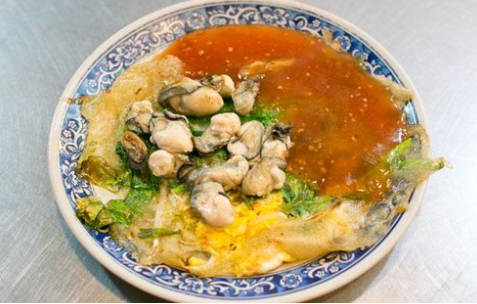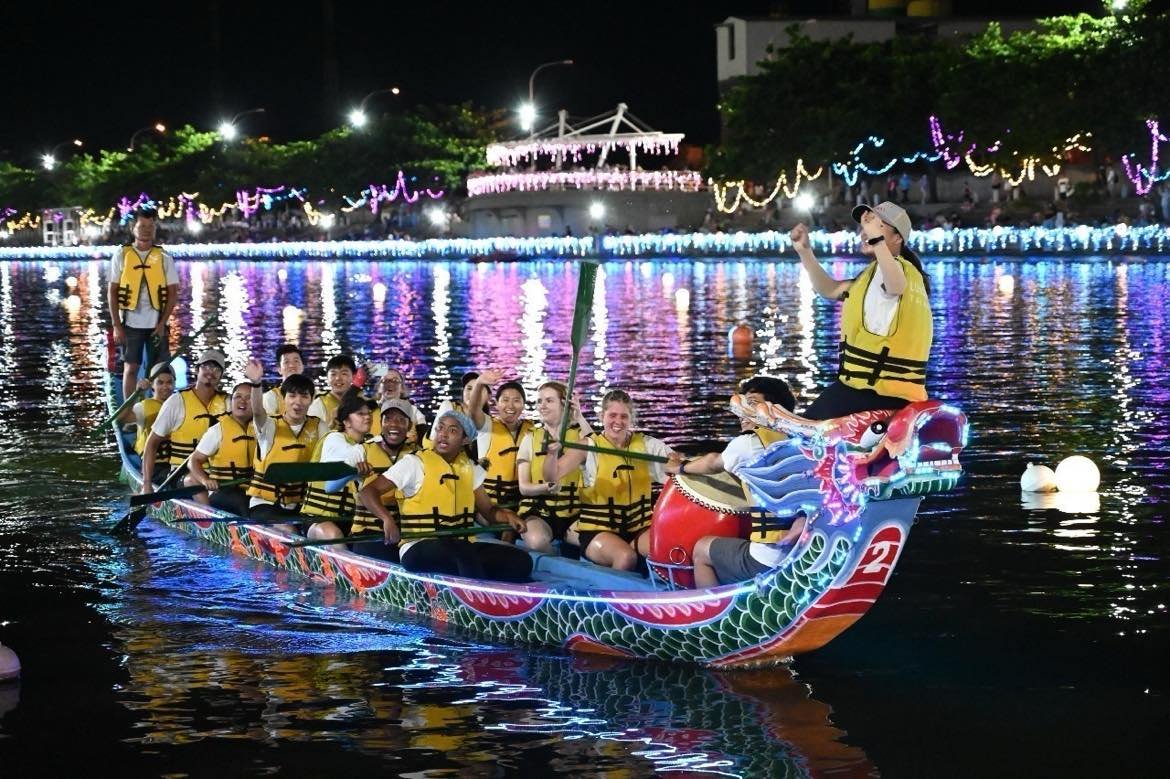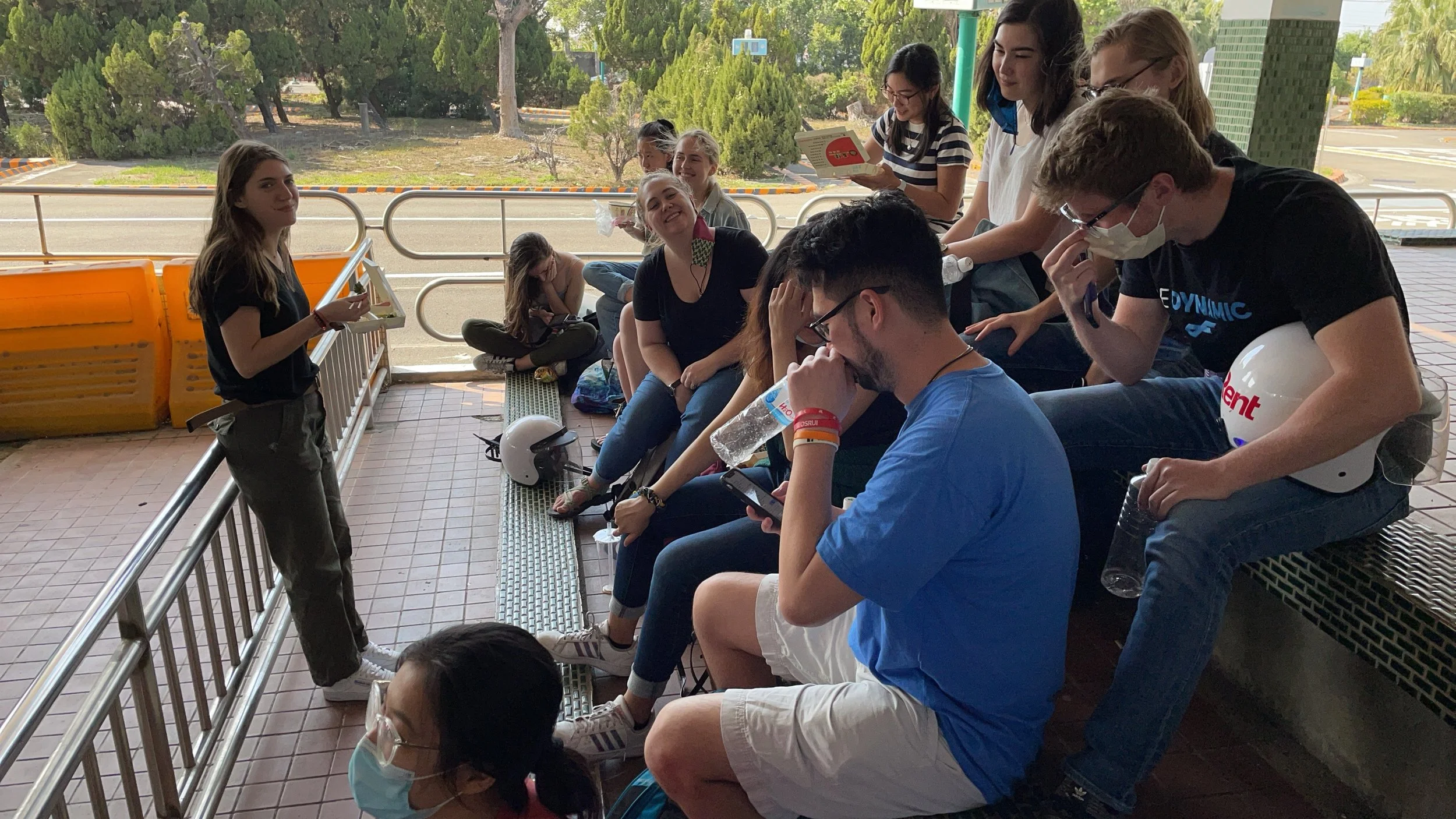Living in Changhu
Living Area Condition
Yuanlin Area (No. 16)
Located on the east of the county, Yuanlin is the second largest township in Changhua County. The township rings true to its label as an urban township; people bustle about from the early mornings to when the day turns dark. Most of Yuanlin’s residents consist of the elderly or young children. That said, Yuanlin is home to a number of large schools, like Yuanlin Elementary and Yuanlin High School, resulting in many students commuting to and from the schools to their respective homes.
There are a number of restaurants and food stalls lining the township’s street. It’s easy to get anything from local Taiwanese treats, like”甜不辣” and xiaolongbao, to Western food, such as Italian and Thai. There are a few grocery stores scattered around the township for those interested in cooking their food. Yuanlin also has a large traditional market, where you can find fresh vegetables and fruits. Most basic culinary necessities and ingredients can be found in Yuanlin.
Changhua City (No. 5)
Changhua city is the largest city in the county, also the center of the northern part of Changhua. Being the intersection of mountain line and coast line of TRA, this makes Changhua city have a unique role on the railway system. There are also some best schools in the county located in this city, such as Changhua senior high school and Changhua girl’s senior high school. In Changhua city, you can explore the famous Big Buddha on Baguashan and see the scene of the whole city, you can also visit the historical fan-shaped train garage. There are also many traditional foods you can find in the city. No matter the famous Taiwanese meatballs (肉圓), braised pork rice (Khong bah png爌肉飯) or clam noodles (蛤仔麵) are the local food that people can’t miss. Overall, Changhua city is the place that merges both modernity and history. It has a chill living pace and worth to be explored.
Yuanlin (No.16)
Located on the east of the county, Yuanlin is the second largest city in Changhua County. The city rings true to its label as an urban township; people bustle about from the early mornings to when the day turns dark. Most of Yuanlin’s residents consist of the elderly or young children. That said, Yuanlin is home to several large schools, like Yuanlin Elementary and Yuanlin High School, resulting in many students commuting to and from the schools to their respective homes. There are a number of restaurants and food stalls lining the township’s street. It’ s easy to get anything from local Taiwanese treats, like ”甜不辣”(Tianbula) and “小籠包”(xiaolongbao), to Western food, such as Italian and Thai. There are a few grocery stores scattered around the township for those interested in cooking their food. Yuanlin also has a large traditional market, where you can find fresh vegetables and fruits. Most basic culinary necessities and ingredients can be found in Yuanlin
Lukang Area (No.4)
Lukang is a slow-paced town by the coast with many temples and seafood options. Bringing in a bit of a weekend crowd, visitors from around Taiwan stop by Lukang to praise Mazu and meander through its old streets. Since there are little to no foreigners living in Lukang, not as many people speak English, but they are very welcoming nonetheless! Many of the older population speaks Taiwanese. Most shops close around 8:00 p.m. Even though there is no nightlife in Lukang, the Glass Temple—the only temple in the world made completely of glass—is an enjoyable visit. You shouldn’t walk through Lukang without seeking out the narrowest and most famous lane in Lukang, Breast Touching Lane. Crowded with people in the morning and evening, the Lukang Stadium provides a 400 meter public track, basketball courts, and tennis courts. Tutoring the neighbors’ kids, getting involved in a calligraphy club, or joining people at the track are all great ways to engage with the kind community of Lukang.
Events and Festivals
THE MAZU PILGRIMAGE 媽祖繞境- 2018-19 RACHEL HIGSON & EMILY DILLEMUTH
The Mazu pilgrimage was spectacular to witness, not only because of the cultural elements of the experience, but because of how my view of Taiwanese peoples’ unending kindness was reaffirmed by the sheer generosity of the locals participating in the event.
Our school’s counselor, Wanting, invited us to the pilgrimage. Mulder, the Chinese teacher, ended up tagging along too. We walked from Yuanlin to Dacun, just about five kilometers. Mulder taught me Chinese along the way, and I practiced on the many people standing alongside the route who were passing out free food and drink. They were just local volunteers who set up tables outside of their shops and homes to cheer on the walkers and keep them fed and hydrated in the heat. Although Mazu was far behind us, we began to walk the route, slowly but surely, passing numbers of people handing out water and tea, noodles and candies, ready to refresh any weary traveler for a long day of baibaiing.
After our walk to Dacun, we pushed into the crowded train like the fabric of a sleeping bag jamming into its small case. The summer humidity had snuck into April, and we could feel people’s warmth from millimeters away, even though, miraculously, no one was quite touching us. With sweat dripping down the skin of our backs slowly, we stood with feet spread shoulder-length to keep our balance.
It’s great to see people caring for one another. The community emphasis in Taiwanese culture manifests in many different ways: clean streets, open temple doors, high recycling rates, strong familial bonds, kids taking care in cleaning their schools as early as preschool, and religious events that favor inclusion. This event was a wonderful reminder of what an honor it is to be a part of this community, even if just for a year.
Tianjhong Marathon 田中馬拉松
The highlight of the township is the Tianjhong Marathon, which is held every November. Participants come from all over Taiwan, and many come from overseas. Food stalls are lined up throughout the racecourse and hand out free food to runners. Musicians and performers are also scattered along the route to cheer everyone on. The marathon really showcases Tianjhong’s warm hospitality. 2019-20 ETA, Alexandra (Alex) joined and got the first prize out of the 2000 people in the women team!!!
Water Running Festival 二水跑水節
Originating from around a hundred year ago, Water Running Festival is a special and important event in the local community. Changhua government and Ershui township restart the tradition of holding this celebration activity in 2000’s. Water Running Festival usually is held in November, and it has the meaning of commemorating the built of Pa-Pao-Chun (canal), expressing gratitude to ancestors and praying for agricultural harvest. In Water Running Festival, people will have the chance to run in the old canal, and experience the local worshiping activity.
Transportation
HSR (High Speed Railway)
Although there is HSR station (Tiengjhong Station) in Changhua county, it is rather far from Yuanlin City where we located. Therefore, we suggest you can take HSR to Taichung Station (also known as the Xinwuri Station) then transfer by TRA (train) to Yuanlin train station in 30 minutes.
Bus
Taking bus is another option. The bus station is close to the Yuanlin Train Station that you can take bus trips to Lukang and Taipei with more flexible schedule.
TRA (Taiwan Railway Administration)
Current ETAs take trains to commute between the schools and apartments, and also to go to Taichung.
Scooter:
Since Changhua is located within the major industrial environment so that usually you will see trunks passing by on the roads and highways. Plus, Changhua is populated with the majority of elderly people that typically recognized as the group of not to follow the traffic rules. Therefore, Fulbright discourages Changhua ETAs drive scooter in the area. However, you can still get a scooter driver’s license and drive if you are FULLY understand that you have to be responsible for your own safety while driving scooter in Changhua.
Car: ( This offer may variy due to local government’s contract each year)
Without a train station in Lukang, Changhua is the first site in Taiwan that offers Lukang ETAs a car their transportation. Fulbright helps current Lukang ETAs rent a car for commuting purpose between school and apartment. Since the partial car rental fee and toll fee will shared by Lukang ETAs, ETAs can make long trips around Taiwan with the car. Therefore, if your placement is in Changhua and you have a driver’s license, please make sure to get an international driver’s license in your state before coming to Taiwan. For more information about how to apply an international driver’s license, please check at https://www.englishintaiwan.com/life-in-taiwan/driving-in-taiwan-with-an-international-license
Chinese Learning
There are rather less universities in Changhua compare to other cities in Taiwan. Although they do provide Chinese classes, the classes are usually during weekdays. However, if you are interested to have the regular learning process, you can either find a private tutor (NTD$450-550/per hour), online learning, or even get to Taichung on weekends to have Chinese classes in some private Chinese institution. Please refer to the following website for more information.
Food
龍燈夜市Long Deng Night Market
Yuanlin’s very own night market is open Tuesday, Friday, and Sunday nights. It is filled with typical Taiwanese snacks such as green onion pancakes, stinky tofu, papaya milk, noodle dishes, fried chicken, and so much more. In addition to the typical night market finds, Long Deng also has black stinky tofu, steak and noodle plates, ring toss games, and a spot to ride around in small cars regardless of your age. On weekends, there is typically live music and other performances. It is packed full of Yuanlin community members who are at Long Deng for the delicious food and fun games. The night market is located on the outskirts of Yuanlin in a lovely park. You cannot miss the giant dragon that lights up and changes color at night. (2018-19 Lauren)
正老牌謝米糕/油飯Sticky Rice
彰化縣員林市忠孝街98號No. 98, Zhongxiao Street, Yuanlin City, Changhua County
Sticky Rice (米糕/油飯) is a Chinese rice dish commonly made from glutinous rice. It is cooked in many different ways according to culture and tradition like the rice dumplings commonly made for the Dragon Boat Festival . It is typically made with soy sauce, oyster sauce, scallions, cilantro, mushrooms, and pork.
第一市場王爺宮後炸粿-蚵嗲 Fried Oyster bun and Oyster Omelette
彰化縣員林市博愛路2號No. 326-2, Bo'ai Road, Yuanlin City, Changhua County
This omelette is different than a western style omelette since it doesn’t just rely on egg to make the ‘pancake.’ It also uses a flour and water mixture and is then added to vegetables, finishing with the special spicy and sour sauce.
The fried Oyster bun is a special fried seafood snack that is usually served on the Taiwan coast. It is made with a flour base, with layers of cabbage slices, sprouts, green onions and oysters. It is then deep fried in the pot until the crust is golden.
員林米苔目Silver needle noodle
員林市博愛路17號 No. 17, Bo'ai Road, Yuanlin City, Changhua County
Silver needle noodle is a variety of Chinese noodles. It is short, about 5 cm long and 5 mm in diameter. It has a white semi-transparent color. The noodles may be stir-fried, scalded and flavored with a mixture of sauces, cooked in soup or cooked dry in a clay-pot.
員林賴家碗粿Savory rice pudding
彰化縣員林市民生路76號 No. 76, Minsheng Road, Yuanlin City, Changhua County
Savory rice pudding is another sticky rice dish also called Wa gui that is served in a bowl mixed with duck egg yolk, shiitake mushrooms, pork, and shrimp.
員林寶斗肉圓 Yuanlin Ba-wan
員林市三民街59號 No. 59, Sanmin Street, Yuanlin City, Changhua County
Ba-wan is a Taiwanese street food, consisting of translucent dough made of sweet potato starch filled with a savory stuffing and served with a sweet and savory sauce. The stuffing varies widely across different regions in Taiwan, but it usually consists of a mixture of pork, bamboo shoots, and shiitake mushrooms. Changhua style ba-wan is considered to be the "standard" ba-wan since it is the most famous and most widely imitated of all styles.
番薯市八寶圓仔冰 Sweet potato ‘babao’ ice
員林市光明街216號 No. 216, Guangming Street, Yuanlin City, Changhua County
Ba-Boa shaved ice is a popular dessert in the hot summer! It contains a total of eight (ba comes from eight in Chinese) kinds of beans and sweets-- big bean, red bean, green bean, jelly, peanut, pineapple, sweet potato and little tapioca.
Yuanlin City Map, download at http://www.yuanlin.gov.tw/tour/images/1040428-3.pdf
More about Yuanlin Handbook: http://www.yuanlin.gov.tw/tour/images/1040428-2.pdf
Our life in Changhua
ETA’s Blog
Brittany’s-
https://brittanypedwards.wixsite.com/taiwan
ttps://brittanypedwards.wixsite.com/elements (Food blog)

































